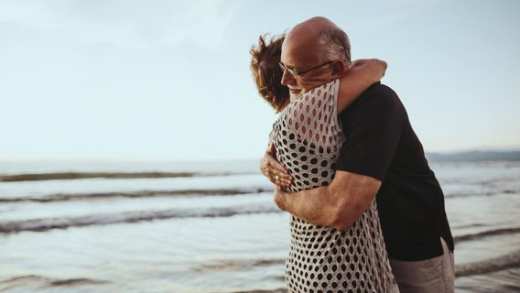What happens to your pension when you die?
If you’re thinking about how you can provide for your loved ones, find out if and how your pension can be passed on.

You’ve worked hard to build up your pension pot. So you’ll probably want to know what will happen to it when you die.
This depends on the type of pension you have and the options you’ve chosen. So, it’s sensible to check the rules of your pension scheme or annuity for details.
But here are some general rules and common situations to consider. Tax treatment depends on your individual circumstances and may be subject to change in the future.
If you have a private pension and you've not taken an income from it
There are 2 common types of private pension and they behave in different ways if you die before you start taking payments from them.
- A defined contribution pension – a pension that’s based on how much has been paid into it – will normally make the value of your pension pot available to your dependants or other beneficiaries. This could be as a lump sum or an income over time, depending on what your pension provides. If you die before age 75, benefits under money purchase schemes can usually be passed on to your beneficiaries free of tax. If you die on or after your 75th birthday, it will be taxed as their income as they receive payments.
- A defined benefit pension – a pension that’s based on your final or average salary and the length of time you work for the employer – will usually pay a pension to your spouse or partner. It may also pay a pension to your children until they leave full time education. The pensions paid to dependants are usually less than the pension you would have received.
If you're already being paid from an annuity
An annuity is a financial product that pays you an income for life, which you buy with money from your pension fund. If you die while receiving income from an annuity, what happens next will depend on which type of annuity you've chosen.
If you're already being paid from an Aviva annuity your Pension Annuity or Enhanced Pension Annuity will end when you die unless:
- You die within the first 90 days of your plan start date, in which case if your annuity has value protection it will be applied and a lump sum will be paid to one or more chosen beneficiaries. If you have a dependant on your plan, the lump sum will only be paid if you both die within this period and will be paid to one or more chosen beneficiaries of the last one of you to die
- You die after 90 days but within your guarantee period. Payments will continue until the end of the guarantee period, these will be paid to your estate or dependant on the policy
- An income is to be paid to a dependant and they are still alive
- You have chosen to continue your value protection beyond the first 90 days of your plan start date, in which case a lump sum may be payable to one or more of you or your dependant's chosen beneficiaries minus any payments that have already been made.
If you're drawing down income from your pension
If you die while receiving income from a drawdown contract, your dependants have 3 options:
- If you’re under 75, any drawdown benefits can usually be passed on as a lump sum free of tax. If you are 75 or older, your dependants will have to pay tax on what they receive
- They can continue the drawdown and carry on taking an income from it.
- They can use the remaining fund to purchase an annuity.
If you are 75 or older, your dependants will have to pay tax on what they receive.
You usually can't choose one of these options in advance.
Find out more about annuities, income drawdown and other ways to access your pension fund here.
What about inheritance tax?
The death benefit from all pensions is normally free of inheritance tax. It doesn't matter whether the money is from undrawn savings or what's left in your fund after some money has been drawn down.
Remaining guaranteed instalments and payments from annuities may be subject to inheritance tax depending on the circumstances and on the terms and conditions of your annuity plan.
If you have an ISA or other investments
If you die while you have money invested in an ISA, your surviving spouse or civil partner will receive an Additional Permitted Subscription (APS) allowance equal to the total value of your ISAs. This is available for 3 years.
If you die while you have money invested in an investment product, this money will normally form part of your estate. This means it may be subject to inheritance tax.
Why it's important to make a will
Making a will gives you reassurance that what you own will go to the people who matter most to you. We'd strongly recommend that you take this simple step as soon as possible.



